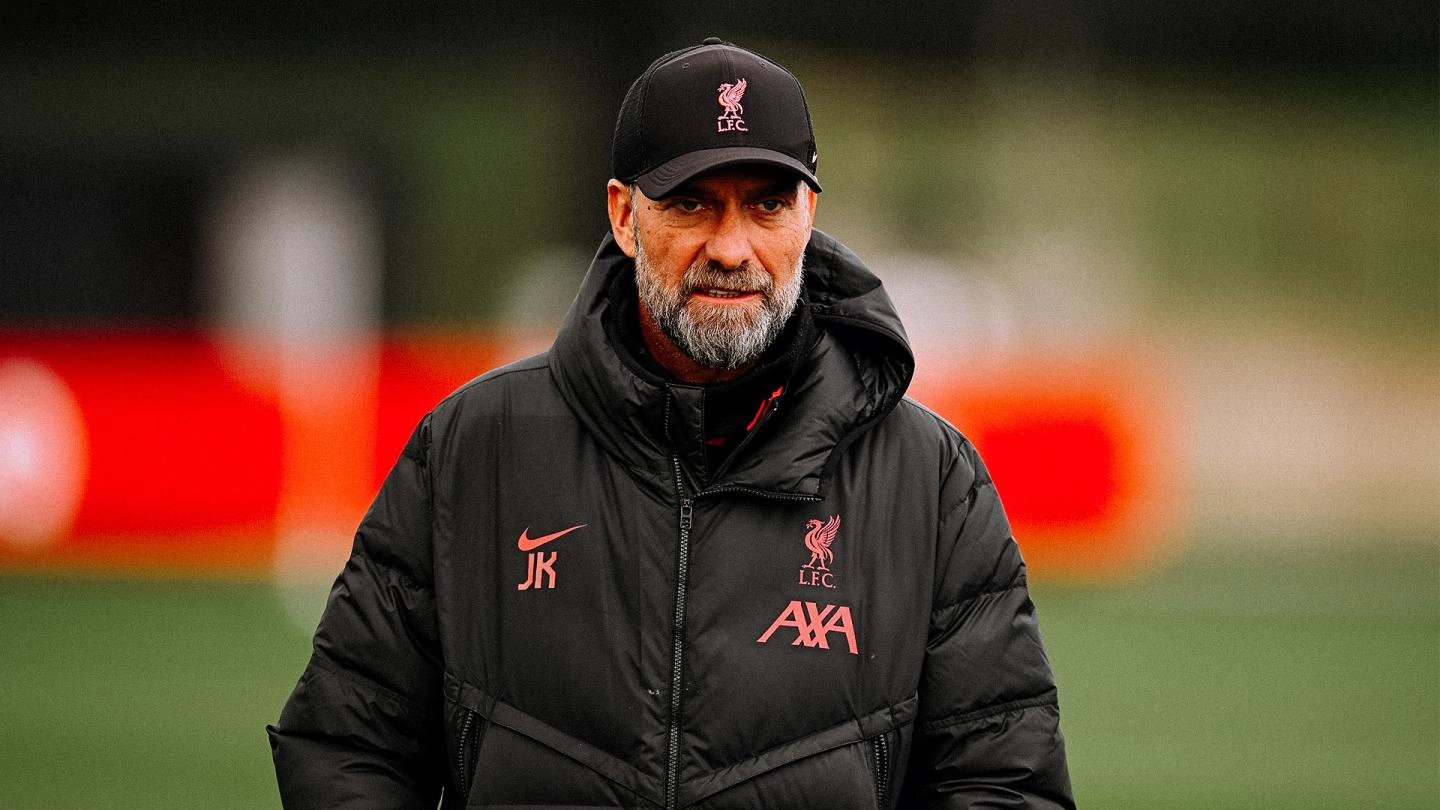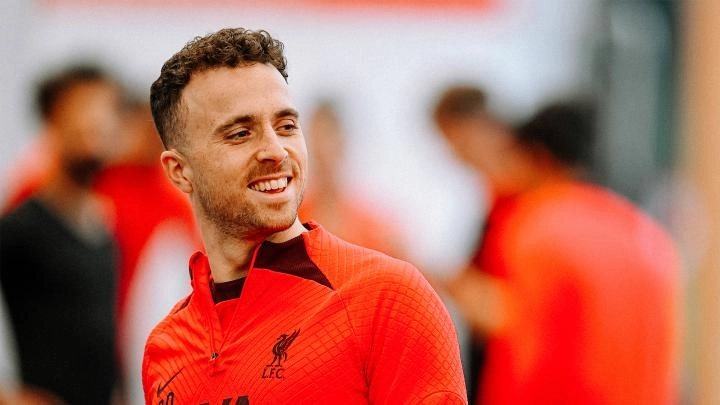
Press conferenceJürgen Klopp on Wolves challenge, signs of encouragement, changes and more
The Reds boss sat down to answer questions at the AXA Training Centre ahead of his side's visit to Molineux Stadium this weekend.
Read on to see what he had to say ahead of the contest below on a range of subjects...
On whether last week's performance at Brighton gave him encouragement...
Yes, it did – and no, because first and foremost we want to win football games. I think it was possible [in this] game; that's good. So, it was not possible in the Brighton game we played before that with the performance we put in, but that day it was absolutely possible we could've won it. [We] shouldn't have lost it, but did – that's true as well. After the game directly the disappointment is massive, emotions are involved.
There was a moment in the [league] game where you kind of, not accept, but you know we might play them again. So, no problem. We made good steps in the right direction but then you concede that goal, and the way we concede it was obviously not cool. So, yeah, there are things absolutely which we can use [and] we have to use and that's what we tried. That's what we will have to show tomorrow.
On the challenge of facing the same team three times in quick succession...
Yeah, we had Brighton and Wolves. So, in between Chelsea, yeah, true. It’s not a massive challenge to be honest with you. They will make a few changes, obviously, as well because they had kind of a cup thing when Nunes and Neves didn't play together, for example. Maybe some other positions [too] where it was slightly different to the league games they played before. That might have been because of rotation, or the competition, I don't know exactly. There are obviously changes possible which makes it different... it happened quite frequently, we played Arsenal twice in a row and stuff in different competitions. These kind of things happen quite frequently. Yeah, three times, but it was not in one week, so we had time in between. They played games, we played games in between, so that's what we use for the analyse. Both teams know each other probably after these weeks now pretty well. They’re doing well and they work now longer together with the manager again and again and obviously we will see that. [They're] very competitive, in all the games they were competitive. Let’s give it a try again.
- Want to watch this video? Subscribe to LFCTV GO now and get a month FREE using the code GOFREE23
On whether the next run of 'tough' fixtures could inspire his team...
I don’t worry about the run of fixtures, not at all. We have to use the time we have in our hands to improve, to play the football we have to play, to work on things we think that are necessary or massively necessary for the way we want to play football. That's what we did now all the time. I understand 100 per cent... we saw steps, definitely. We were much better in a lot of areas. Then in the end when the result is not right that overshadows everything. But we will fight for results, there is a lot to go for, we have half the season only played, which is crazy, but it means we have the second half of the season. We can do whatever we want in a positive direction as well and that's obviously what the plan is. It's not about now thinking about the next fixtures, it's just the next fixture, and this is tomorrow; Wolves. That's the start in the second part of the season and we decide how positive the outcome will be.
On how difficult it is for top players to find their optimum levels after losing form...
It's not a massive difference to lesser good players. If there is a dip in their development, it’s something you have to deal with. I think you all see that some players haven’t exactly reached the levels they have reached for us consistently over the past five or six years. That’s not unusual. It happens to other players as well. One of the best examples is probably Marcus Rashford. The season he had last year and the season he is having this year, I’m not sure he can explain it.
Of course, Erik ten Hag coming in, a new voice, a different approach, all of these things [can make a difference]. It’s not like Marcus didn’t want to deliver last year, I’m pretty sure about that. But now he is flying, and that’s how it goes. You have to use the time in between these two extremes, you have to work through it and fight through it. Self-pity is not allowed in these moments. The only one person you can change it is yourself. Those kinds of things can happen and will happen in the future as well. Of course, it’s about trying to limit the time [when not in your best form] and get back on track. The team can help with that. The team performance is obviously a summary of the individual performances, but it works the other way around as well. That’s how it is, sometimes the team helps you through these kind of things and if you have one, two or three of those [individual] performances, then it makes it more and more difficult.
That doesn’t change the view on the players in general, but you have to make decisions for the moment – for line-ups and things like this. That’s maybe a bit more of a problem for the manager when you realise that is not only a little dip, it goes on for longer. You have to think about alternatives and these kind of things. For a player, it is a situation they will face during a long career – not only once but probably two or three times and that’s normal, so you have to get through this. I know my players will definitely come through this and they will show again how good they are.
On whether he looks to make changes or alter his approach as a manager when going through tough spells...
We changed a lot. You have to change in good periods as well. You cannot think, ‘That works well, I hope nobody else realises it’. Other teams adapt, other teams realise… We do analysis and they do analysis. We always changed little things. Most of the times, when we have changed, we have seen direct improvements after that. That is really enjoyable, when you see that is a good idea and then it really works out. That’s the situation now. I’ve said we had an idea for the Brighton [Premier League] game weeks ago and that obviously didn’t work out. But we change during the year, we have changed systems this year more often than other seasons.
The main reason we changed it because we didn’t defend as well as we should. If it looks like the boys in this moment cannot do it, then you have to help them with a different formation and that’s what we’ve tried. We played 4-4-2 quite frequently and these kind of things. That’s part of the job as well. Again, that’s how it always is – you change something and always has to work out, otherwise you look a bit silly. It’s like, ‘What was the idea behind that?’. The idea can be good but sometimes how you bring it on the pitch it’s not as good. But that’s the deal, I have to make the change before we play, and we know afterwards if it worked out or not. That is why experience is really important. I know these things can happen, it doesn’t cost me confidence or whatever. It’s just normal.
On Fabinho's importance and how he has dealt with being in and out of the team recently...
We don’t have arguments on the training ground or anything. If you think that, that is not the case at all. He knows he’s not flying and he has to work his way back. That’s how it is. It’s now really helpful we have Stefan [Bajcetic] because he’s doing really well. In this position, you need a guy who wins challenges, who protects everybody, but who plays football as well. It’s really important and for plenty of years, [Fabinho has been] the best in that position for a long time. At the moment, it’s not clicking and that’s true as well, you have to go through that. He’s not the happiest person on the planet but he understands the decision.
Feature10 of the best recent Merseyside derby moments at Anfield
NewsPremier League confirms fixture release date for 2025-26 season
Programme notesWhat Virgil van Dijk wants from Liverpool fans during the Merseyside derby
MatchLiverpool v Everton: Merseyside derby team news
MatchThe opposition lowdown: Everton
